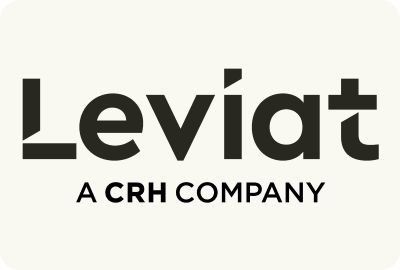




Water pumping uses significant energy, especially during peak growing seasons. Managing this while controlling costs is crucial.
Energy use fluctuates during planting and harvest, requiring careful cost planning.
Farmers face increasing demands to reduce carbon footprints while maintaining yields.
Monitoring energy use across assets is complex but key for cost savings and efficiency.





































Irrigation is one of the largest energy expenses in agriculture. Zembl helps reduce these costs by sourcing competitive electricity rates tailored to your usage patterns. We also provide bill validation and tariff reviews to ensure you’re not overpaying for your irrigation energy.
Through our procurement services, we negotiate energy contracts that account for the seasonal nature of agriculture. We assess your usage data to help you avoid unfavourable rates during peak periods like irrigation or harvest.
Using insights from your real-time energy data, we identify where efficiency improvements can be made without disrupting operations. We can connect you with trusted partners to implement upgrades like solar systems, LED lighting, or Power Factor Correction devices, all geared to reducing costs while maintaining output.
We help you take measurable steps towards sustainability by identifying energy-saving opportunities and referring you to trusted partners for renewable upgrades like solar. All recommendations are informed by real usage data, which can also support your carbon reporting and stakeholder communication.
Our energy intelligence service, powered by Energetica, gives you detailed, real-time insights into energy use across pumps, storage, and processing operations. This allows you to detect inefficiencies, validate bills, and make informed decisions to optimise your energy strategy.
Yes, many farms benefit from solar and battery systems to offset grid reliance. While we don’t install these directly, we use your energy data to assess your suitability and refer you to trusted partners who can scope, design, and implement the right solution.
Peak demand charges, often triggered by high-usage equipment like pumps, can dramatically inflate bills. With our intelligence tools and partner solutions, we help you manage this through Power Factor Correction, load shifting strategies, and smart usage insights.
Generic energy plans rarely suit agricultural operations. We work with you to secure a tailored contract based on your real usage, giving you better control over costs and ensuring flexibility for your seasonal energy needs.
Yes, we use your energy data to help determine whether on-site solar or battery storage is viable. If so, we refer you to efficiency partners who can guide you through the implementation process from design to installation.
Managing energy in agriculture involves more than picking a provider. We offer ongoing support across procurement, bill validation, tariff reviews, and energy insights, so you’re not only getting competitive rates but continually identifying ways to save and improve.
The small energy market for SMEs (small and medium-sized enterprises) typically includes businesses consuming under 100,000 kWh of electricity or spending less than about $2,500 monthly on energy. Bills for these customers are usually sent quarterly.
On the other hand, the large energy market for C&I (commercial & industrial) businesses consists of those using over 100,000 kWh per year or spending more than about $2,500 a month. In NSW, VIC, QLD, and ACT, a C&I business is defined as one that consumes more than 100,000 kWh annually. In SA, this threshold is set at over 160,000 kWh per year, with bills always issued monthly.
What sets small business (SME) energy customers apart from large business (C&I) customers is that the large business customers can participate in, or qualify for, the wholesale energy market, enabling them to secure forward purchasing at better rates.
To figure out where you stand, simply check your energy bill. With this information, you should have no trouble determining if you've received a SME or C&I energy bill.
To compare commercial energy contracts effectively, start by filling out our online commercial energy form. After that, a Zembl Energy Consultant will call you to discuss your energy procurement needs and what your business is looking for.
Your Energy Consultant will conduct a free energy tender on your behalf, seeking the best energy rates from our panel of retailers. They will then present the options to you, and once you're satisfied, handle all the legwork to set your new contract in motion.
Switching commercial energy providers can lead to improved service quality and access to better energy contracts. New providers may offer competitive rates, innovative solutions, and flexible contract terms.
Once you become a Zembl customer, you gain the advantage of having a dedicated Zembl Energy Consultant in your corner. When it’s time to renew your energy contract, your consultant will compare your current rates to the best offers available from our panel of retailers. Should you choose to switch to a new retailer, rest assured that your consultant will manage the entire process end-to-end, ensuring a seamless transition that maximises your savings and satisfies your energy needs.
Of course, we know that switching energy providers isn't always the best move for everyone. We take pride in securing competitive commercial energy rates for businesses, and we often work with the existing retailer to negotiate better terms and pricing, while also comparing to what is available from others on the market.
Commercial energy contracts are typically locked in for the full term agreed upon, which can span several months to a few years. This stability is essential for budgeting and planning, but it also means that once you sign a contract, you are committed to the terms and pricing until it expires.
Therefore, the most strategic time to start reviewing your commercial energy contract is within the 12 months prior to the end of your current agreement. This early review allows businesses to assess market conditions, explore new pricing options, and negotiate competitive terms well ahead of contract renewal. By allowing Zembl's Energy Consultants to proactively manage your energy contract, you can ensure that you continue to stay on competitive rates.
Common mistakes when selecting a commercial energy contract include not thoroughly understanding contract terms, overlooking hidden fees, and failing to compare multiple retailers. Additionally, many businesses neglect to consider their long-term energy needs and potential changes in usage patterns. Avoiding these pitfalls can lead to more favourable outcomes and sustained cost efficiency.
With Zembl's Energy Procurement service, our experienced Energy Consultants will guide you through the entire process of selecting a commercial energy contract, ensuring you avoid common pitfalls. We understand the complexities involved in making the right choice, and our team is dedicated to providing you with tailored advice and support every step of the way. By leveraging our expertise, you can navigate the landscape confidently, eliminating the risk of overlooking crucial details or making uninformed decisions.
The first step is to understand your commercial business's energy costs by comparing your current rates with the rates available on the market, and that's exactly what Zembl's Energy Consultants do in the initial phase of the energy procurement process. This is the best way to see the energy rates available on the market at the time from our full panel of retailers, and our Energy Consultants can handle any of the heavy lifting to get you set up on the new contract.
After that, you'll benefit from Zembl's full Energy Intelligence service, which includes bill validation to spot and fix any errors, network tariff analysis for potential savings, Energy Expense Budgeting for electricity cost forecasts, and leveraging your meter data to uncover commercial energy efficiency opportunities like solar & battery solutions, LED lighting, heat pumps, Power Factor Correction, and Energy Audits—all facilitated by our trusted partners who can execute these initiatives for your business.
Using Zembl for your energy procurement and efficiency needs will mean you know more, use less, and ultimately pay less for your energy.
Retailer reputation: Take into account a retailer’s customer service standards, online customer reviews, and their overall consistency and reliability. All retailers partnered with Zembl have undergone thorough vetting and are widely recognised as trustworthy and dependable.
Additional charges: Be aware of any additional charges not included in the base rate, and take the time to understand your network costs.
Renewable energy: If sustainability is important, consider contracts that include renewable energy sources, and check for any available green energy rebates.
Contract terms: Consider whether the length of the contract suits your business's needs, and be aware of any early termination fees for cancelling.


Zembl is proud to be a signatory of the National Customer Code for Energy Brokers, Consultants and Retailers.

Zembl is proud to be a signatory of the National Customer Code for Energy Comparators & Energy Moving Services.
Availability of retailers and plans can vary state by state and is dependent on the property and connection type. At times commercial relationships may impact what retailers or plans are made available. Zembl does not represent every retailer in the market.
1Based on Zembl Product Review reviews as of June 2025.
2Based on feedback collected from customers between 1 January and 31 March 2025.